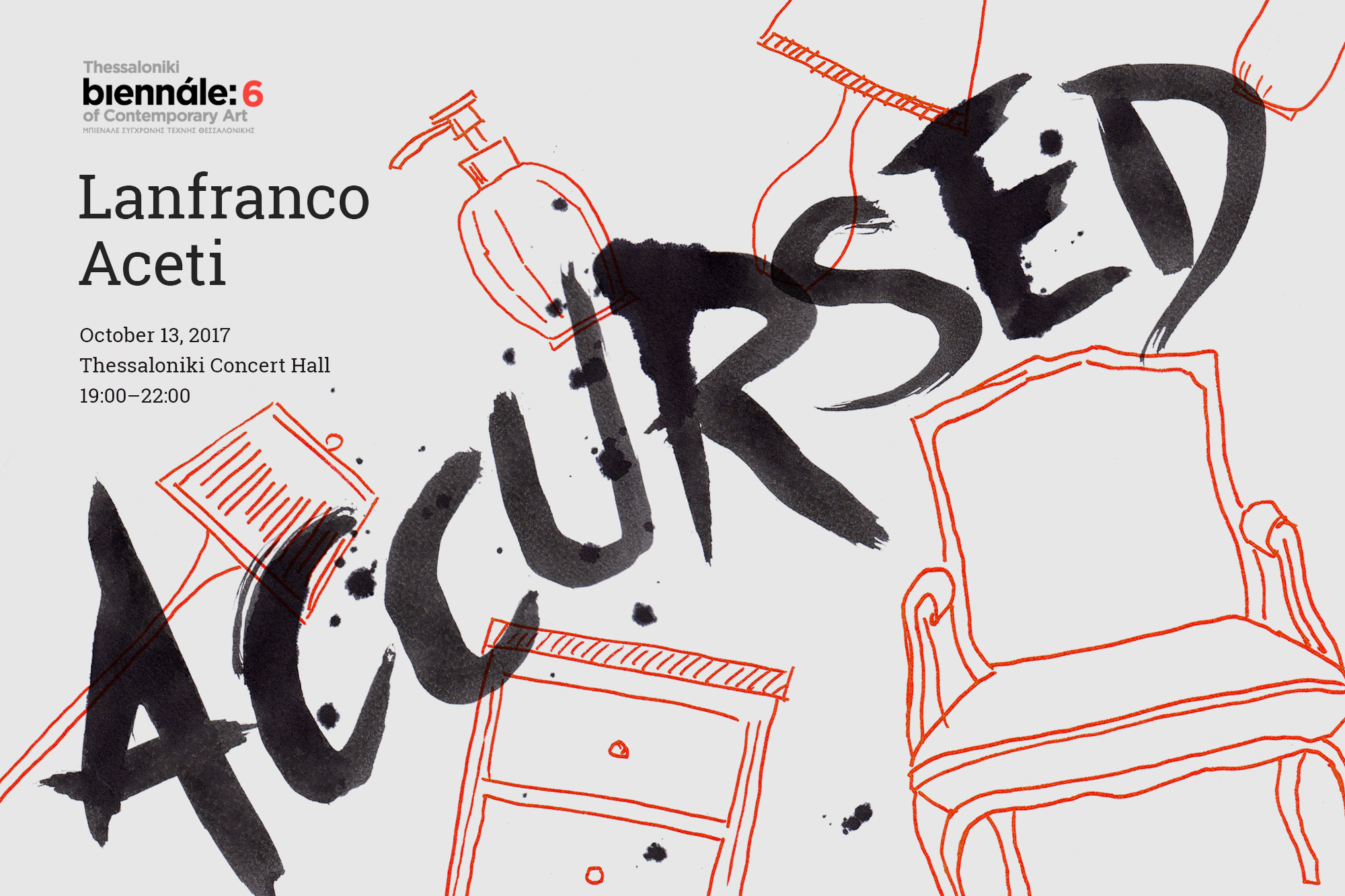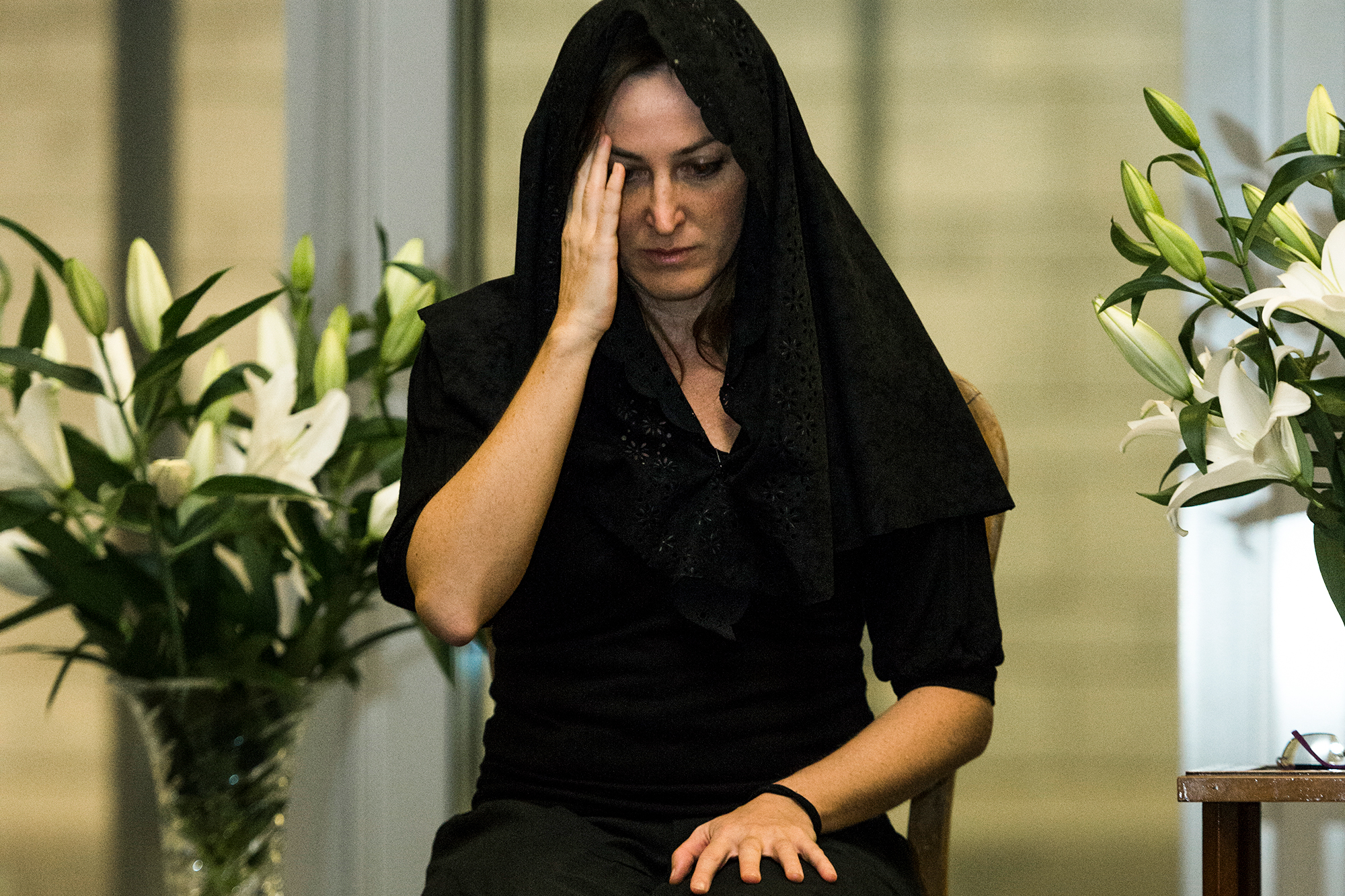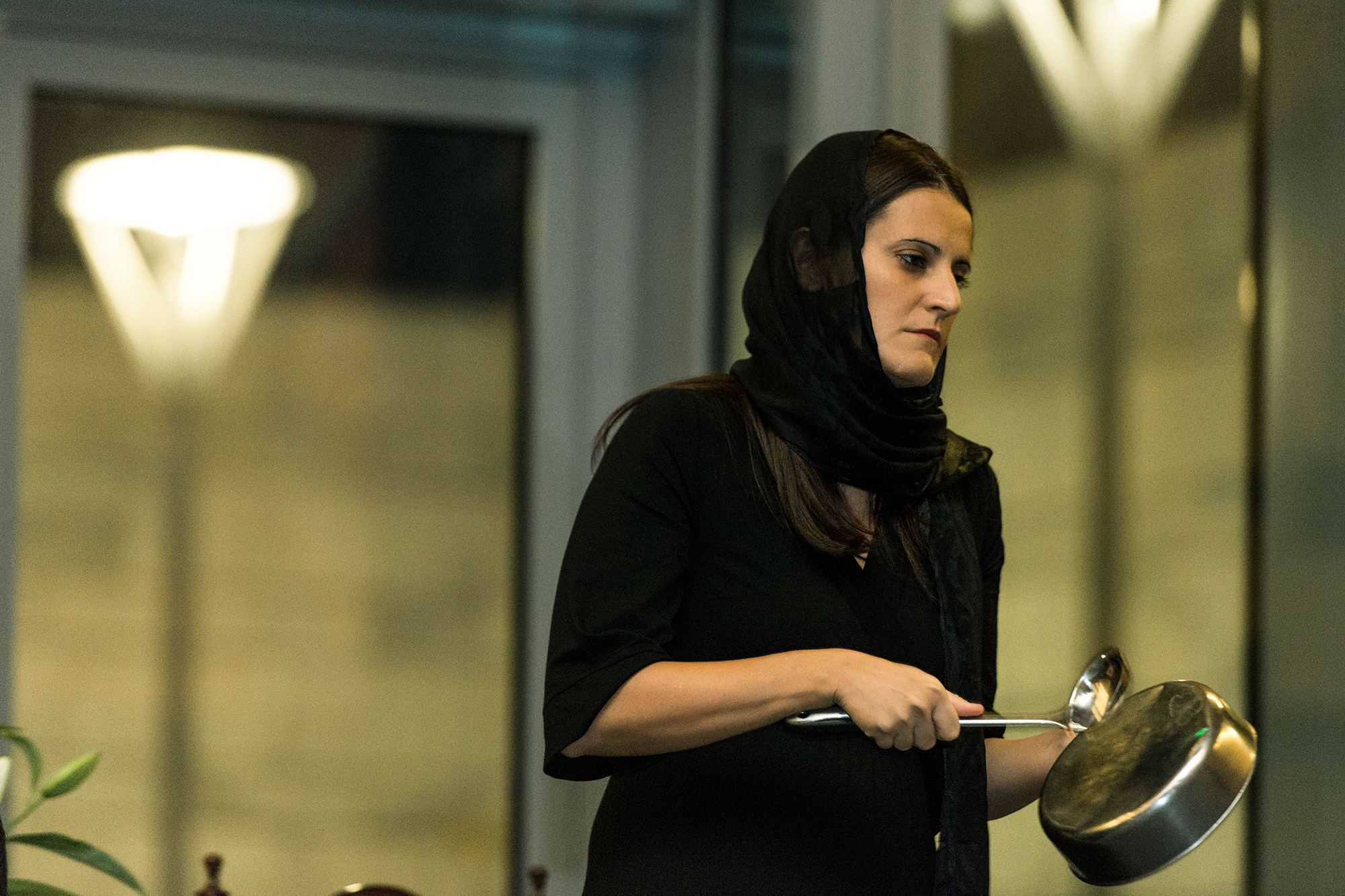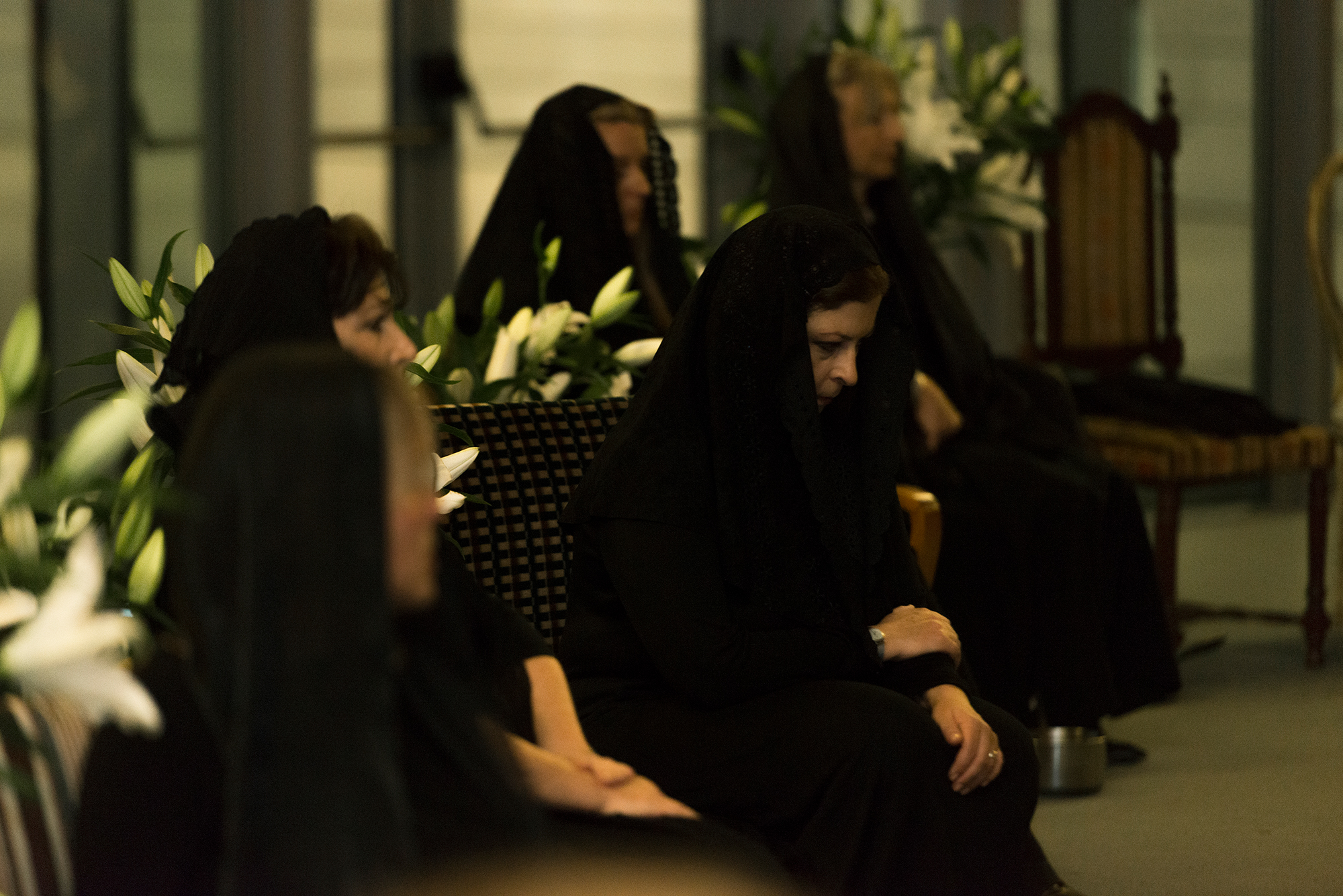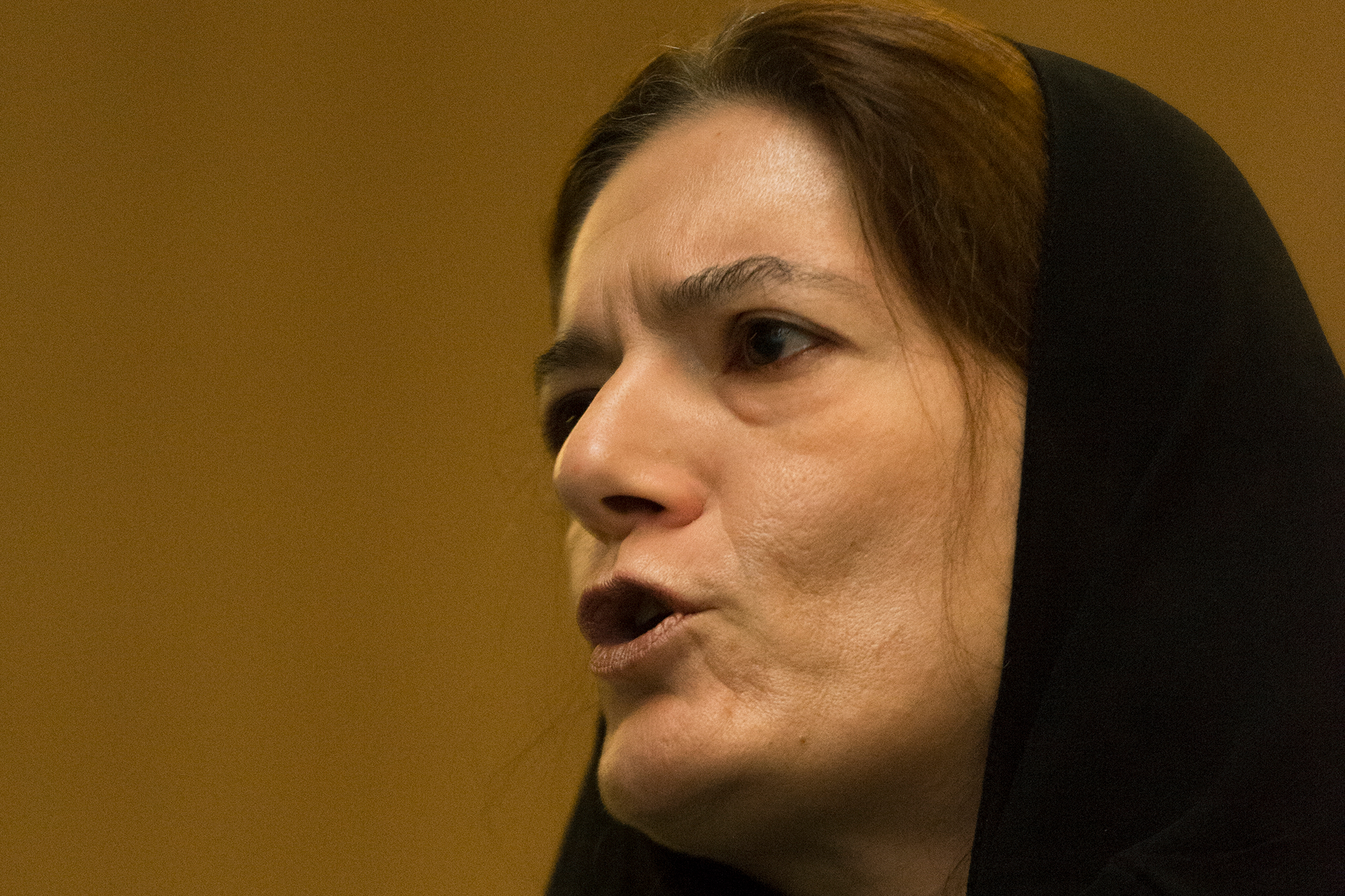What is in a curse? And who are the accursed? The artist, Lanfranco Aceti, has created a performance titled Accursed and curated by Areti Leopolou that addresses the theme of the Thessaloniki Biennale, Imagined Homes, by bringing the privacy of the home into the public space. The accursed plebs—lower class and middle class alike—voice their angers and frustrations at the Thessaloniki Concert Hall in the form of curses addressed to the state, politicians, financiers, and everyone else involved in the post-modern dismantling of the idea of socially rooted matriarchal values of collaboration, sharing, participation, service, and care.
Twelve women between the age of fifty and seventy years old will form a semicircle laying bare objects from the privacy of their homes. Armchairs, side tables, and crystal vases placed in the public space symbolize the idea of a specific home inherited from the second part of the twentieth century; one made of useless rendered sacrifices, betrayed by upward social mobility and deluded dreams of social existence. The twelve women are surrounded by the Thessaloniki Chorus which will be singing an acapella version of a composition collated by the artist from Lamentationes Prophetae Jeremiae of Giovanni Pierluigi da Palestrina and Lamentation of Christos Samaras.
The history of curses in the Mediterranean goes back thousands of years to the invocations for misfortune on enemies, real and imagined, asked of Greek and Roman gods. The invocations are for love, economics, and political issues, creating a layered landscape in which the private and the public blend in the desperation of the lives of those accursed and cursing.
By expressing their unmitigated frustrations in the form of curses, the performers will break the lament of the chorus in order to articulate vulgarity, anger, and a sense of freedom based on the certainty that nothing else is left to lose—not even dignity since this is a construct of the body politic to restrain and control with values and morals, behaviors and resistance both within the public and private realms.
The artist conceives the relationship between these twelve women and the state as a very personal one, in which the state is a person and the idea of sufferance in privacy is subverted and rendered loudly public. Aceti argues that the body politics and the millennial continuous reference to the state as a body/person—a physical prerogative more recently acquired by corporations but started by Agrippa Menenius Lanatus in 494 B.C.—requires today a personal response that is clearly emotive, irrational, emotional, and uterine. This response has to be manifested beyond and outside the phallic boundaries set by the patriarchal state and recover its original matriarchal cavernous chthonian roots. It is an aesthetic approach that wears the millennial insults towards matriarchy and its social frameworks as a badge of honor publicly stated to incise within the public realm the idea and role of a different social approach so often disparaged in the name of the failed ideologies of free market and unethical economics.
The inferno in which ‘plebs’ have been and are being condemned to is the same inferno within which these people—moronic politicians, shitty financiers, and corporate fuckwads—deserve to be condemned to by these publicly imposed curses. Aceti invited the twelve women to either author their own curses or adopt the ones he wrote, imagining how to punish and torture those at the helm of contemporary society’s corrosion, as if they were in a contemporary Dantesque inferno. The artist’s curses speak of thousands of elephants on viagra raping the ass of a politician, of guts ripped out and dragged away by cats and dogs, and of the rotten shitty flesh of children’s sweet cheeks.
Accursed, as a performance, is all about shifting the idea of who is on the receiving end of a curse: the dismantling of society cannot just affect ‘neo-plebs’ and ‘post-citizens’ but is a rebounding curse that will render corrupt politicians—at some point in time—accursed. No longer submitted to structures of power and control, at least as a new ideological framework, people—as post-citizens—are free to reimagine their own individuality and the frameworks for new societal norms.
“The conclusion,” writes Michel Foucault “would be that the political, ethical, social, philosophical problem of our days is not to try to liberate the individual from the state, and from the state’s institutions, but to liberate both from the state and from the type of individualization which is linked to the state. We have to promote new forms of subjectivity through the refusal of this kind of individuality that has been imposed on us for several centuries.” [1]
“It is time—explains the artist—to show some guts: either our guts or the guts of those who have caused and continue to cause this mayhem in order to preserve privileges and entitlements. A curse is an apotropaically vulgar and absolutely fantastical expression of feelings and desires that most likely will never happen. In repressed Western society where people are condemned to the obligation of hypocritical optimism in public and to the capitalistic misery of depression, solitude, and anger at home, the opportunity for the voiceless to voice their apotropaic wishes publicly is one that offers a moment of imaginary revenge, the possibility for social re-engagement, and the opportunity to make a public stand.”
In the fraying fabric of contemporary society there is a process of reaction that argues for a returning to a status quo ante—that of an ideal state as a body within which society perhaps existed—which is identifiable with a fascistic return to a golden age. This performance is not a lamentation and a commiseration for what has happened, it is a public voicing of silenced private feelings restricted to the home. It is a rally to launch a woman’s cavernous cry for war.
[1] Michel Foucault, Power: Essential Works of Foucault 1954-1984, Vol. 3, ed. James D. Faubion, trans. Robert Hurley et. al. (New York: The New Press, 2000), 336.
Poster Design: Deniz Cem Onduygu, https://www.fevkalade.net.
Images: Lanfranco Aceti, Accursed, 2017. Installation and performance, Thessaloniki Biennale of Contemporary Art. Photography: pSari visual, www.psari-visual.com.
The performance program ACCURSED took place in the framework of the Thessaloniki Performance Festival. The festival is part of the Main Program of the 6th Thessaloniki Biennale of Contemporary Art which is organized by the State Museum of Contemporary Art and co-financed by Greece and the European Union (European Regional Development Fund).
6th Thessaloniki Biennale of Contemporary Art
“Imagined Homes”
30.09.2017-14.01.2018
www.thessalonikibiennale.gr
For the performance Accursed, realized on October 13, 2017, Thessaloniki Concert Hall, 7 pm to 10 pm, special thanks to the Thessaloniki Concert Hall Organisation and to the Mixed Choir of Thessaloniki: Artistic Director for Accursed, Mary Konstantinidis. Performers: Aquili Claudia, Bouloni Olga, Gazi Marilia, Kakkou Yetta, Kimpiri Popi, Kliroporou Dimitra, Panagiotara Maria, Papadaki Mariangela, Saltiel Eleni, Sariani Nicola, Simeonidou Eleni, and Skoumbourdi Tommy.
Artist Bio
Lanfranco Aceti works as an artist, curator, and academic. He is a research affiliate and visiting professor at ACT @ MIT and director of the Arts Administration Program at Boston University. He has exhibited numerous personal projects including Car Park, a public performance in the UK at the John Hansard Gallery; Who The People? an installation artwork acquired in its entirety by the Chetham’s Library and Museum in Manchester; Sowing and Reaping, installation artworks acquired in their entirety by the National Museum of Contemporary Art of Cyprus; and Hope Coming On a site-specific choral performance he designed with the Museum of Fine Arts Boston and realized in front of Turner’s Slave Ship. In 2017, Aceti prepared a series of new artworks for an exhibition entitled Shimmer and curated by Irini Papadimitriou (V&A) at the Tobazi Mansion in Hydra, a new large choral performance titled Accursed for the Thessaloniki Biennial in Greece; and knock, knock, knocking a public space installation in the Mediterranean Garden Pavilion of the New Sea Waterfront of Thessaloniki.

